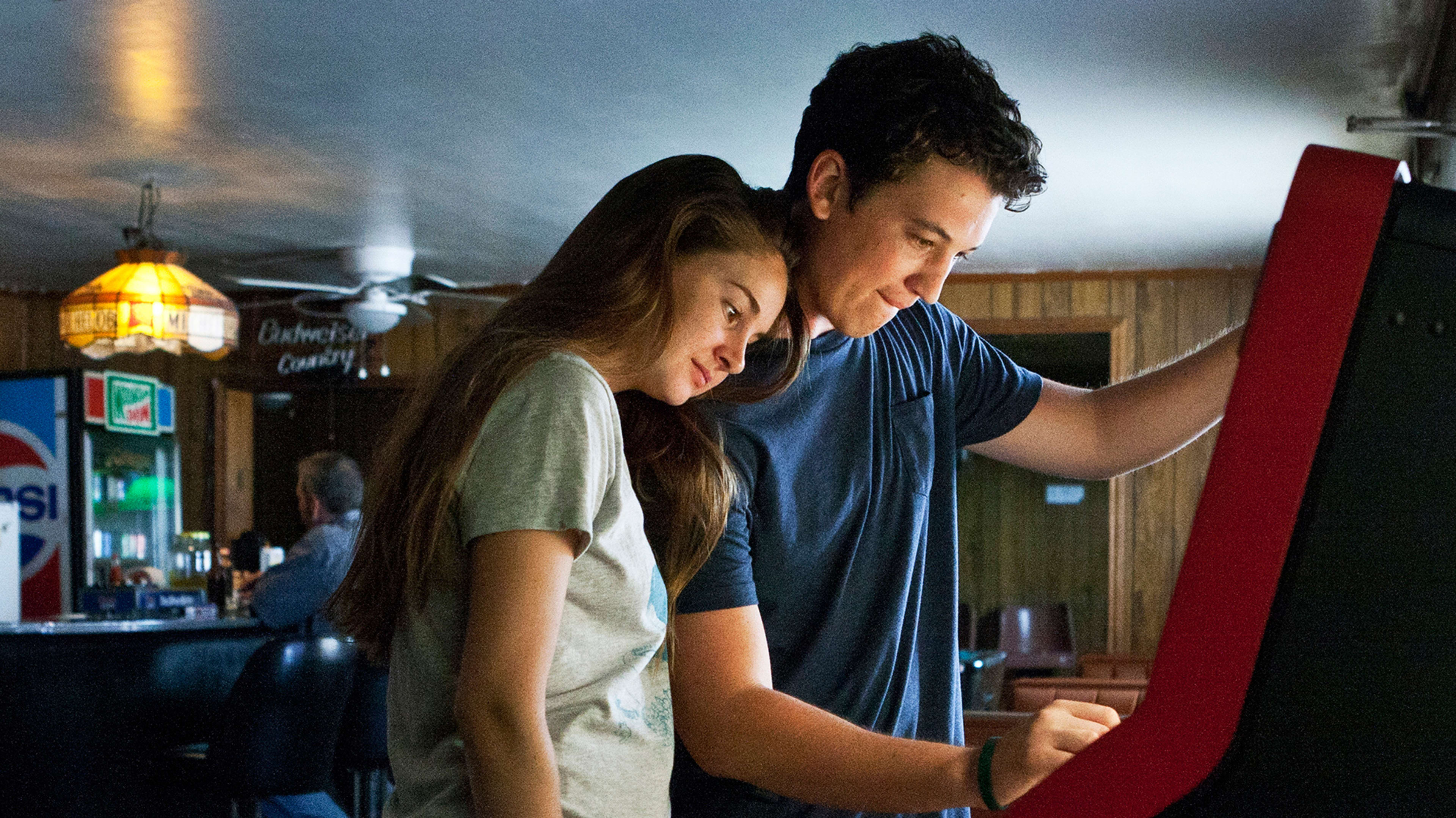On the surface, James Ponsoldt, the writer and director of last year’s acclaimed film Smashed, about a couple’s struggle with alcoholism, might not seem like the ideal person to direct a touching teenage coming-of-age film. But he seems to have struck a chord with his new film, The Spectacular Now, which opens this week and has been receiving warm reviews from critics and moviegoers alike. One of the hits of this year’s Sundance Film Festival, where it won a Special Jury Award for Acting, the film, set in the present day and in an unnamed small town, tells the story of a high school student named Sutter (played by Miles Teller in a breakout role), who is coasting through life until he meets Aimee (Shailene Woodley), who changes his world.
Coming-of-age stories have been a Hollywood staple for decades, and Ponsoldt has long been an admirer of such films. Some of his favorites include: Splendor in the Grass, Rebel Without a Cause, Dazed and Confused, American Graffiti, Show Me Love, River’s Edge, 400 Blows, and Small Change, among others. But after making a coming-of-age story for the 21st century, it turns out that it isn’t all that different from what it was 50 years ago, “Kids still read Romeo and Juliet,” Ponsoldt notes. “A 13-year-old kid is still a 13-year-old kid. Technology may have changed some behaviors, but emotionally there is a continuum.”

Despite the illustrious history of coming-of-age films, recently the phrase has been greeted with a groan by moviegoers since there have been so many poorly conceived and over-the-top iterations. Earlier this year, films like Spring Breakers and The Bling Ring tried to capture the edgy side of being young in America. Both films were filled with sex, drugs, and criminal activity, and both films were held up as examples of the degeneration of today’s youth. However, as a film that focuses on more intimate moments and the ups and downs in the lives of average teenagers, The Spectacular Now may well be closer to the truth.
“So many bad movies or TV shows about teenagers get really fixated on the pop culture signifiers of the era and that cultural trends are more important in human nature. They’re just not,” says the director, who is quick to note that audiences won’t find many pop culture cameos in this film. “A lot of times, coming-of-age movies are flat and reductive; the reality is that today’s teenagers are incredibly sophisticated.” In order to do a coming of age film right, Ponsoldt is emphatic about the need to “approach the characters with a respect, honesty, and dignity that has nothing to do with their age. You have to step back and remember you are telling a story about a human being.” To achieve that, he says he tried to behave more like a documentarian as he made this narrative feature film. “I think people are really complicated and have complicated emotional inner lives. I like the contradictions in people, and I don’t ever want to judge them.”
Ponsoldt, who grew up in Athens, Georgia, where he also shot The Spectacular Now, says he has a good memory and can remember vividly what it’s like to be 17. Nevertheless, throughout production, he encouraged all the young actors including Teller and Woodley who play characters approximately their own age, to provide input and tweaks to dialogue to make sure it truly reflected the way high schoolers speak, dress, and think. In addition, Ponsoldt took a naturalistic approach and embraced the real-life emotional events occurring in all the actor’s lives and reflected them into their performances, “It’s like an accumulation of happy accidents and little epiphanies that create the illusion that this actually happened,” he says, “Even though there’s a book and a script and actors and we said action and cut.”
It’s that same approach that Ponsoldt will carry into his future projects. In the near term, he’s slated to write an adaptation of the musical Pippin (he’s seen the current Broadway revival many times already) and direct a screenplay called Rodham about the early life of Hillary Clinton, which topped last year’s Black List of the best unproduced screenplays in Hollywood. He says that as he prepares to make these wildly different films, he’ll have the same simple goal in mind, “I like to feel things when I see a movie. Most movies I see, I don’t feel much. But when I do, I am entirely grateful for the experience. I want to make films where that is the experience.”
Recognize your brand’s excellence by applying to this year’s Brands That Matter Awards before the early-rate deadline, May 3.
